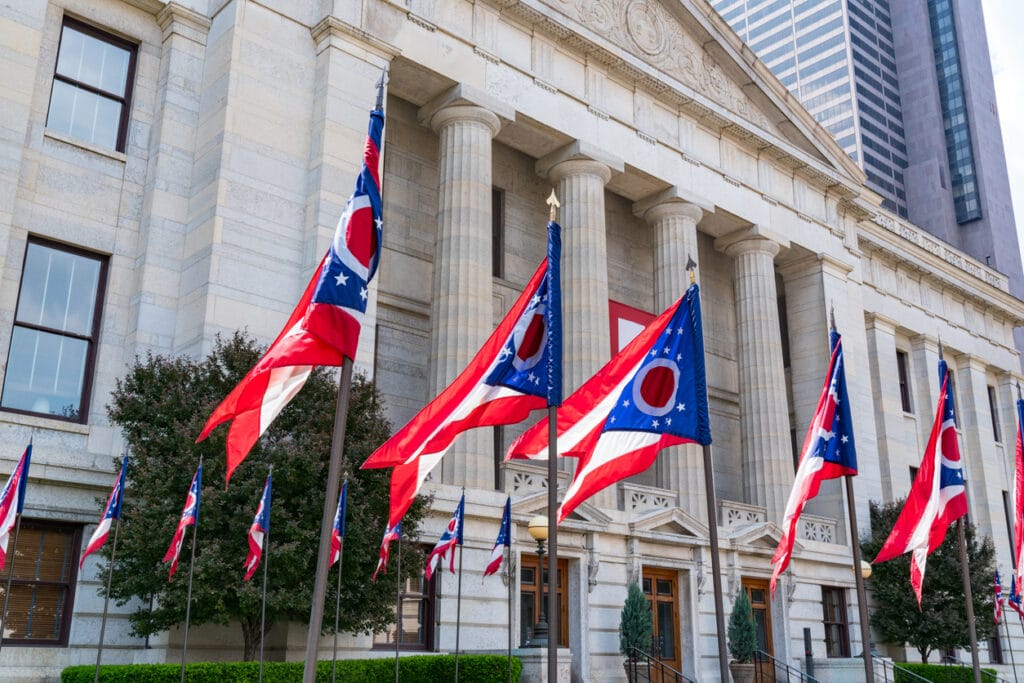Let states lead: Rebalancing federal-state partnerships

Information about this comment opportunity first appeared in Dispatch from DC, the Center for Practical Federalism’s bi-weekly newsletter highlighting federal actions that impact state governments. To stay informed, sign up for updates on congressional activity, federal regulations, and executive branch actions affecting the states. Subscribe here.
Cooperative federalism is a foundational principle of American governance, embedded in everything from environmental law to public health policy. But in practice, it often feels more like one-way compliance than true collaboration. Federal agencies all too often dictate the terms while states are left with the burden of implementation, and the blame when things go wrong. Whether it’s guidance that quietly (and many times illegally) reinterprets statutes, grant conditions that tie the hands of local officials, or federal standards that override state expertise, the balance of power has drifted steadily away from the states.
That breakdown in balance is precisely what prompted the Administrative Conference of the United States (ACUS), a small but influential federal agency that advises on improving administrative processes, to launch a new inquiry. ACUS is requesting public comments on how federal agencies work with state, local, tribal, and territorial governments. The goal? To identify best practices and implement reforms that make collaboration real, not just rhetorical.
This isn’t a generic call for good government ideas. It’s a pointed effort to ask: Is federal-state collaboration still functional or has it become coercive? And just as important; what are the best practices that can restore balance, ensuring states are respected as equal partners in program design, implementation, and oversight?
Why It Matters
Nearly 81 percent of federal statutes assume some level of cooperation with state and local governments. That includes programs like Medicaid, workplace safety, infrastructure permitting, and even disaster response. But those partnerships only work when states are treated as equal partners, not compliance vessels for Washington’s latest priorities. Too often, the “cooperative” aspect of cooperative federalism is absent, replaced by top-down mandates and one-sided directives.
This comment period offers a rare chance to flag those pain points and call for structural reforms.
What ACUS Wants to Know
ACUS is asking for specific feedback on how collaboration works (or doesn’t), and what lessons can be learned. Here are the questions they want addressed:
- What has your experience been in collaborating with federal agencies to carry out programs?
- Who are your typical intergovernmental partners, and how effective is the relationship?
- Are there concrete practices or structures that make collaboration work well, and what makes those partnerships successful?
- What barriers exist to productive federal-state partnerships, and what strategies have helped overcome them?
- How do partners communicate, and has technology helped or hindered coordination and engagement?
- Are the laws and rules that govern collaboration widely understood and publicly accessible?
- Are policies governing the federal-local relationship made available?
What to Do
Send comments by July 28, 2025 to:
- info@acus.gov Subject line: Federal Agency Collaboration with State, Local, Tribal, and Territorial Governments
- Or mail to: Administrative Conference of the United States, Suite 706 South, 1120 20th Street NW, Washington, DC 20036.
State and local elected officials, program administrators who manage federally funded or mandated programs, and policy professionals with experience in federal-state implementation dynamics are encouraged to respond. Their first-hand insights are essential to understanding how collaboration works in practice and how it can be improved.
More information can be found here.
— Jennifer Butler, Center for Practical Federalism.
— The Federalism Beat